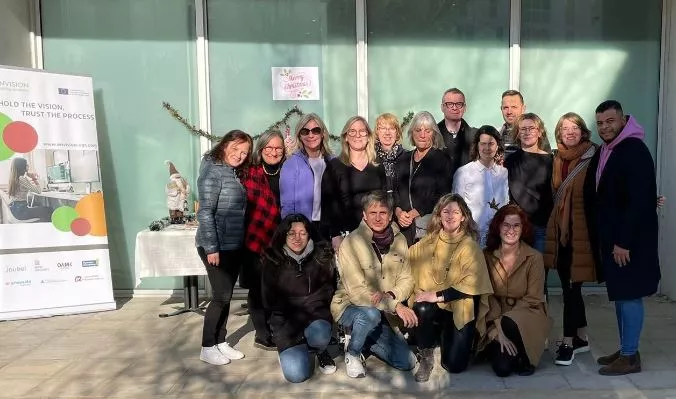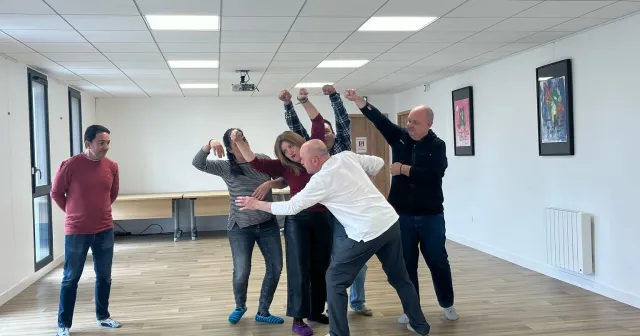Virtual Gaming Simulation in Healthcare
Simulation education is a relatively new pedagogy in nursing and other health care curricula, however during last few years has become an essential part of practice-oriented curricula in healthcare education.
Envision project produced two virtual gaming simulations (VGS) – “Hello, you must be Flo!” in home healthcare and “Caring off duty” in emergency paediatrics. Those two virtual gaming simulations are web-based and very accessible to teachers and students. They can be played anywhere, anytime with repetitive play that facilitates skill development. Due to COVID-19 situation, in-person teaching activities were regularly suspended, including hands-on simulation sessions. The added value of virtual gaming simulations is that they can be used in remote, blended and in-class teaching.
The core of VGS is to promote active engagement in a psychologically safe learning environment.
According to Turner and Harder (2018) psychological safe learning environments in simulation contain three defining attributes:
- ability to make mistakes without consequences,
- the qualities of the facilitator and
- foundational activities such as orientation, preparation, and objectives and expectations.
The importance of TPACK
In the Envision project, we used the TPACK framework and strategies to create the online simulations. The Technological Pedagogical Content Knowledge (TPACK) framework describes the kinds of knowledge required by teachers for the successful integration of technology in teaching. It suggests that teachers need to know about the intersections of technology, pedagogy, and content.
For educators wishing to use VGS and to provide the formation of a significant learning process, it is important to understand:
- the importance of prebriefing for learners to get the most out of their experience,
- how to enact or play the simulations effectively and
- how to debrief a simulation.

Three important phases
The first phase is prebriefing, an orientation session to prepare learners for the experience with the simulation. It is crucial to activate the students' prior knowledge, so that students are prepared for the content that will be covered in the simulation. The case and learning objectives are also presented in this phase to create a safe learning environment. This phase can be organised online or in the classroom.
The second phase is enactment. This indicates the period during which the students are immersed in the simulated case. The Envision-VGS are prepared to experience the enactment in a self-directed way, which means that the VGS can be presented as an individual assignment. In this individual enactment learners play the simulation on their own, at their own pace, and at a time convenient to them.
The last phase – debriefing – is considered as the most important phase of the simulation activity. It is a formal, collaborative, reflective process within the simulation learning activity. Facilitators and learners re-examine the simulation experience for enabling them to get the most out of the simulation in terms of acquisition, understanding and maintenance of the knowledge.
To boost and support online simulations we created guidelines – two guides present a framework and guidelines for the effective use of these VGS. The "How to use" guide offers a step-by-step description for teachers who want to embed these online simulations in their curriculum.
For teachers who have a taste for developing new games, we have created a “How to make?” guide. This “Developer guide” is the testimony of the Envision VGS.
The ENVISION – Virtual Gaming Simulations are result of consortium, which is composed of seven organisations from five different EU countries (NO, SI, BE, ES, FI) and one organisation from Canada.
All resources can be found on the ENVISION project website here: https://envision-vgs.com/
The article was produced in collaboration with the partners in the project.
Tina Ojstršek is a coordinator of international projects at Andragoški zavod Ljudska univerza Velenje.
__________________________________________________________________________________________
Disclaimer
The European Commission’s support for the production of this publication does not constitute an endorsement of the contents, which reflect the views only of the authors, and the Commission cannot be held responsible for any use which may be made of the information contained therein.




